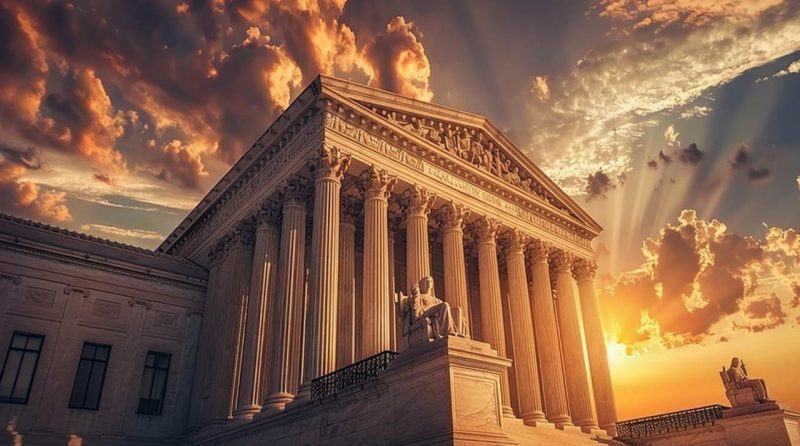
The delay will give court’s elderly conservative justices the opportunity to potentially retire under a Trump administration. – Joy Reid
In the intricate nexus of legal maneuvers and judicial decision-making that marks Donald Trump’s legal battles, a strategic narrative unfolds—one that extends beyond the courtrooms to the very heart of American democracy. At this juncture, the insights of MSNBC host Joy Reid and NYU law professor Melissa Murray provide a provocative lens through which to view the Supreme Court’s role in the unfolding drama. As the highest court in the land deliberates on cases with profound implications for the 2024 presidential election, questions about the motives behind its actions, particularly concerning Trump’s immunity case, have emerged, stirring public discourse and inviting scrutiny of the justices themselves.
Joy Reid’s Perspective
Joy Reid host of “The Reid Out” on MSNBC, has raised poignant questions about the timing and potential motivations behind the Supreme Court’s decision to hear Trump’s immunity case in late April. This decision effectively postpones the former president’s Washington, D.C., criminal trial for trying to overturn the 2020 election. Reid suggests that this timing might have a “motive” beyond legal deliberations: allowing the court’s elderly conservative justices the opportunity to retire under a Trump administration.
The Supreme Court and Its Conservative Justices
Reid’s comments underscore the strategic implications of the Supreme Court’s decisions, particularly as they relate to justices Clarence Thomas and Samuel Alito. Both justices, appointed by former Presidents George H. W. Bush and George W. Bush respectively, are in their seventies, with Thomas at 75 and Alito nearing 74. Their potential retirement under a Republican administration would allow for the appointment of much younger conservative justices, thereby cementing a conservative super-majority for generations. This scenario, as discussed by Reid and Murray, highlights the intertwined nature of the Supreme Court’s decisions with the broader political landscape and the upcoming election.
Ethics and Controversies Surrounding the Justices
Further enriching the narrative are the ethical controversies associated with Justices Thomas and Alito. Reid, leveraging her platform as an opinion journalist, pointedly alludes to Thomas’ longstanding relationship with billionaire Texas businessman Harlan Crow, noting undisclosed lavish vacations paid for by Crow, which Thomas has characterized as “personal hospitality.” Similarly, Alito’s ethics have been questioned, particularly regarding a luxury fishing vacation with Republican billionaire Paul Singer, spotlighting the justices’ interactions with influential figures with vested interests in the Court’s decisions.
Strategic Delays and Judicial Calculations
The strategic employment of delays by Trump’s legal team, particularly in appealing to the Supreme Court to postpone trials based on pending decisions, reveals a calculated effort to navigate the slow-moving judicial system to their advantage. This tactic is emblematic of a broader strategy to leverage the legal landscape, with the Supreme Court’s actions, deliberate or otherwise, playing a pivotal role in the unfolding political drama.
Conclusion
The discourse surrounding the Supreme Court’s handling of Trump’s legal battles, enriched by the insights of Joy Reid and Melissa Murray, paints a complex picture of the interplay between law, politics, and individual ambitions. The Court’s decisions, far from being mere legal determinations, are imbued with significant political ramifications, influencing not just the immediate legal outcomes but the future direction of American democracy. As the nation watches closely, the narrative continues to evolve, reflecting the multifaceted dynamics at play in the highest echelons of power.